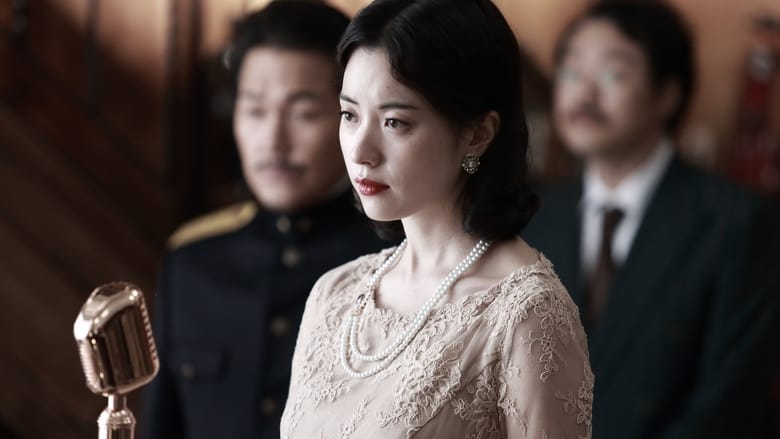

Modern music and reducing female inferiority challenge classical and antiquated arts and male-dominated practices at a time of strife and uncertainty. MODERNITY- “Love, Lies” presents an artistic medium and a country at a crossroads. Lee Byung-hoon’s music is the vital and resonating fiber that unites the period atmosphere with the stirring portrayals of talent. It’s impossible not to feel the emotions they imbue into their punctuating moments of expression through song that fully embody the conflict and romantic encumbrances weighing on their characters. Both Han Hyo-joo and Chun Woo-hee compose lovely vocal presentations and powerful theatrical performances.

“Love, Lies” plays upon the decaying dichotomy orbiting the two women as they vie for love and validation against dignity and betrayal. Melodramas deserve lavish accoutrement and “Love, Lies” does not disappoint. The gorgeously adorned sets, exterior locations, and lush costumes are all bathed in perfect lighting absorbed by Jo Eun-soo’s camera. The recreations of 1940s Seoul (then called Gyeongseong) are incredible. Vibrant period details add production value across every inch of Heung-sik’s film. Jilted by both love and music, So-yool acquires a patron in the form of the local police commissioner (Park Sung-woong of “New World”), a relationship built on exchanges of comfort and career advancement. He convinces Yeon-hee to leave Daesung and the traditional singing methods for this modern arrangements that have inspired the youthful public against the embedded Japanese regime. Kim first woos So-yool only to become enraptured by Yeon-hee’s beauty and vocal talent. Both women idolize the emerging pop mavens of the day, capturing the attention of the city’s top new songwriter Kim Yoon-woo (Yoo Yeon-seok of “Reply 1994”).

So-yool (“Cold Eyes” star Han Hyo-joo) is the daughter of a famous singer and the institution’s headmistress (Jang Young-nam), and Yeon-hee (Chun Woo-hee of “The Wailing”) was a recovered orphan of lower class. Two recent graduates of Daesung have been best friends since they were children. The agency is arriving at a time of transition when a dual invasions are encroaching Korea, mainstream music and the Axis power of Japan. The lesser-talented subordinates became courtesans to those of privilege. The best and brightest from the commune’s tutelage became highly sought-after performers of traditional song and dance. Through the 1940’s, the Daesung Agency trained castoff young women for two purposes.


 0 kommentar(er)
0 kommentar(er)
